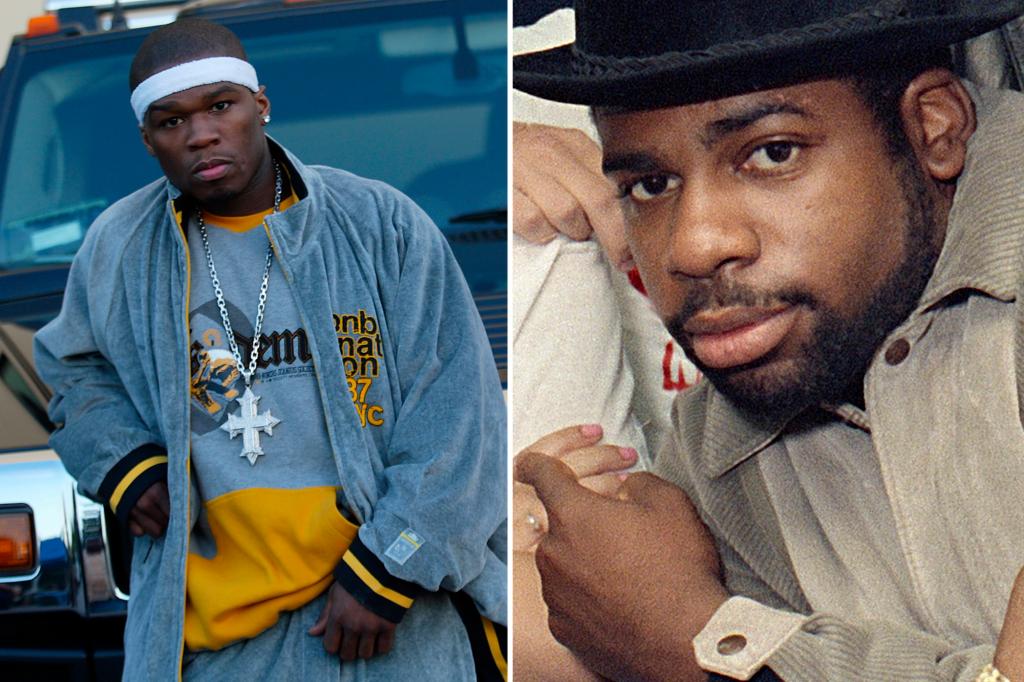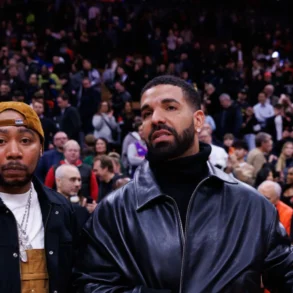
Hip-hop pioneer Jam Master Jay was celebrating 50 Cent’s new record deal just a day before he was murdered in what prosecutors say was a revenge hit, according to court testimony on Thursday.
“His main concern was the blessing of 50 Cent,” the slain Run DMC DJ’s cousin Stephon Watford told a Brooklyn jury at the murder trial of Jay’s alleged assassins.
“He was so happy about 50 Cent getting signed to Dr. Dre. We laughed, we cried. It meant so much to him.”
Watford and Jay, whose real name was Jason Mizell, were inside the 24/7 Studio in Hollis and discussing a trip the DJ and 50 Cent had taken to Milwaukee to celebrate the soon-to-be star rapper’s signing to Shady Records, the record label owned by Eminem.
But Mizell wouldn’t get to see 50 Cent’s rise with chart-toppers like “In Tha Club” and “Candy Shop” produced by Dr. Dre — because a day later, he was shot in the head and died in his studio on Oct. 30, 2002.
Watford told US Assistant Attorney Artie McConnell that he was at the home of Mizell’s sister Bonita Jones when she received a phone call that made her drop to her knees.
Watford grabbed the phone and soon learned what happened to Mizell.
“Jason was dead,” he said.
Ronald Washington and Mizell’s godson Karl Jordan Jr. are now facing charges of murder while engaged in a narcotics trafficking conspiracy in the death of the iconic DJ.
The pair allegedly killed the Run-DMC icon for “greed and revenge” after the pair were stiffed from a drug deal shortly before the killing, prosecutors have said.
Watford said Washingon had been sleeping on the couch at Mizell’s sister’s house in the weeks before the alleged murder. Washington had once warned Watford to stay away from the studio because “something bad was going to happen” days before the murder slay, Watford said under oath.
He later testified that Washington walked into the house on the night of the murder carrying a bottle of Hennessy cognac, while instructing no one to drink it because it was the “last bottle Jay drank out of.”
“He didn’t care [about what happened],” said Watford, who wrote the 2008 documentary “2 Turntables and a Microphone” about the life and death of Mizell.
Later in the proceedings, Yarrah Concepcion, an aspiring R&B singer and rapper hip-hop singer, testified about how she came to Mizell’s studio the day of his murder for an audition — but her dream audition was cut short when she heard the sound of two shots and got a whiff of gunfire.
Concepcion, then 18, was performing in front of Michael Rapley and Randy Allen, a business parter of Mizell’s, in the control room at the time of the shooting, she said.
She sobbed on the stand when she revealed the disturbing moment she knew she didn’t need to check for a pulse.
“When his arm moved, his brain stuff came out of his head and I immediately started dry heaving,” she said.
Rapley, known as “Mike B” and longtime friend of Mizell’s, then testified about how he saw “figures” pop up on a camera immediately after the shooting, but he wasn’t able to tell who they were.
Washington’s attorney, Susan Kellman, tried poking holes in Rapley’s story, getting him to admit that his recollection of the shooting was “probably a combination” of what he remembers and what he heard about the shooting.
“I saw Jay [on the floor],” Rapley said. “Everything else was a blur.”
On Wednesday, Uriel “Tony” Rincon, who was shot in the leg during Mizell’s murder, broke his silence after more than two decades testifying that Jordan, known as “Little D,” was the shooter.
“I heard a couple of shots,” Rincon recalled. “I see Jay fall because his back was to me at the time. As Jay was falling, I saw Jordan shrug him off of him.”
The trial, which is expected to take four weeks, resumes Monday.
This post was originally published on this site be sure to check out more of their content.






